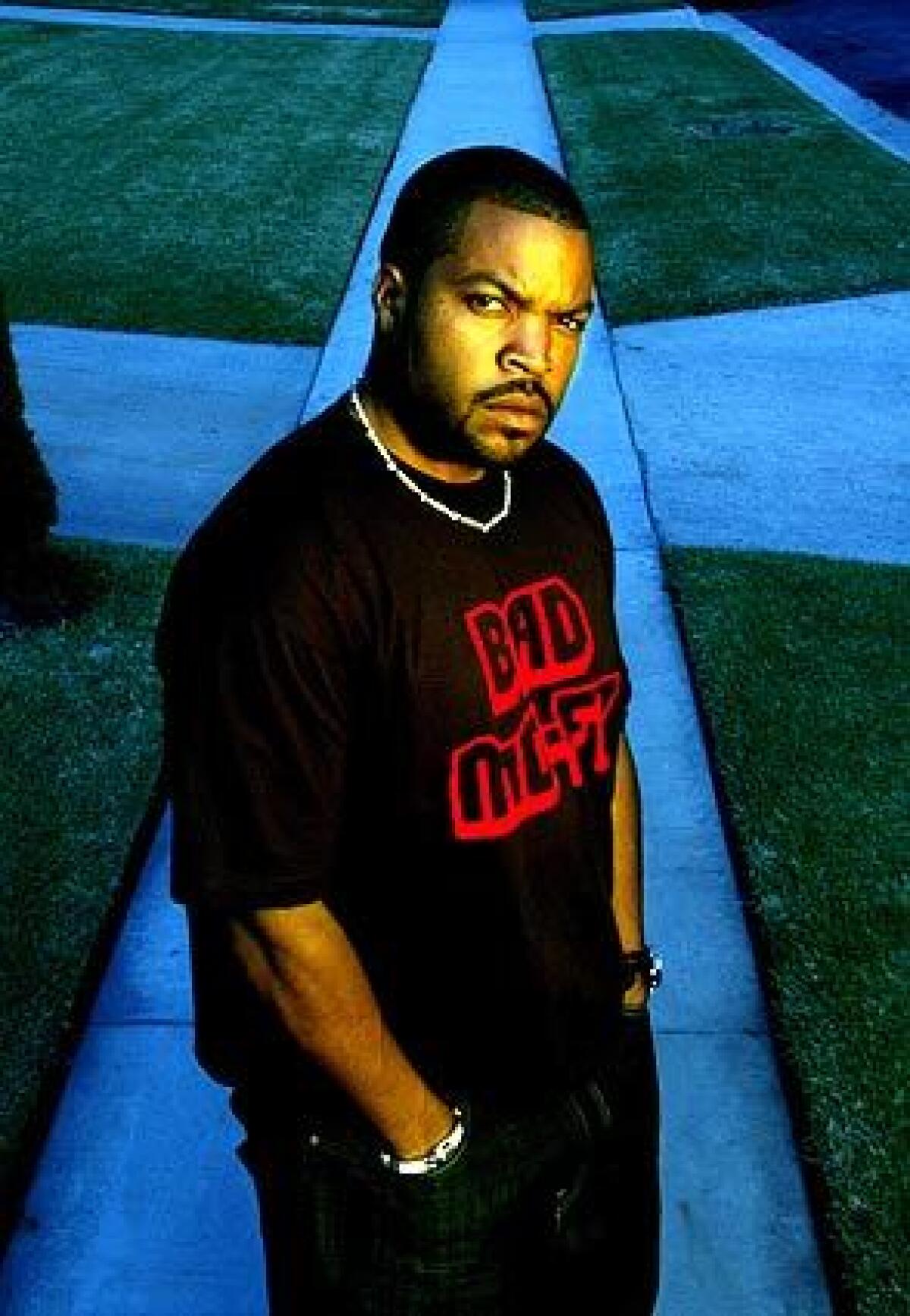Rage with a brand name: Compton

- Share via
YOU could say the often ugly, R-rated brand of hip-hop known as gangsta rap was jump-started by a prank. Dr. Dre, the brilliant record producer, and fellow N.W.A member Eazy-E were motoring through Torrance one afternoon in the late 1980s when Eazy started shooting people at bus stop benches with a paint gun.
The rappers thought this was hilarious — especially because the paint balls were red, which caused their victims to freak out. They were still laughing when they were pulled over by police with guns drawn and ordered to get down on the ground.
Dre and Easy thought that this was another example of the way police abused young African Americans. So they channeled their anger into a song, “F--- tha Police,” which would not only be the centerpiece of the group’s landmark album “Straight Outta Compton,” but also the blueprint for the gangsta rap movement.
In retrospect, it made sense that gangsta rap was born in Southern California because much of the violence and imagery of the music comes straight from an experience that’s quintessential to the region: watching gangster movies at a drive-in theater.
Ice Cube, the chief lyricist for N.W.A, remembers seeing “The Mack” at the old Century Drive-in with his mother and brother when he was 8. He had also seen “The Godfather” and “Scarface” enough times to be able to act out everyone’s part, and he drew upon a lot of that lawless drama when he started writing raps for N.W.A.
“A police car always put you on the alert because you heard so many horror stories about the police just wanting anybody who matched a description,” Ice Cube once told me, explaining the music’s bitter tone. “You could get caught up just because you looked like the suspect, and you could be put in jail for the rest of your life.”
Also contributing to the genre’s Southland roots is the fact that Ice Cube and the others felt free to use the most inflammatory images possible in their songs. New York had a monopoly on commercial hip-hop, so what chance did an L.A. group have of getting a big-time contract or airplay? There was no temptation to soften the language; Cube just wrote what he thought would catch the ears of other young people in the neighborhood.
Yet “Straight Outta Compton” struck such a nerve that it sold 500,000 nationwide in the first six weeks it was released. It would go on to inspire a musical revolution, influencing some of the most vital music of the modern pop era. Although many gangsta rappers simply recycled ideas from “Straight Outta Compton,” others, including Tupac Shakur and Eminem, reflected in equally uncompromising fashion on their own demons, building upon the attitude and engagement pioneered by N.W.A.
More to Read
The biggest entertainment stories
Get our big stories about Hollywood, film, television, music, arts, culture and more right in your inbox as soon as they publish.
You may occasionally receive promotional content from the Los Angeles Times.










